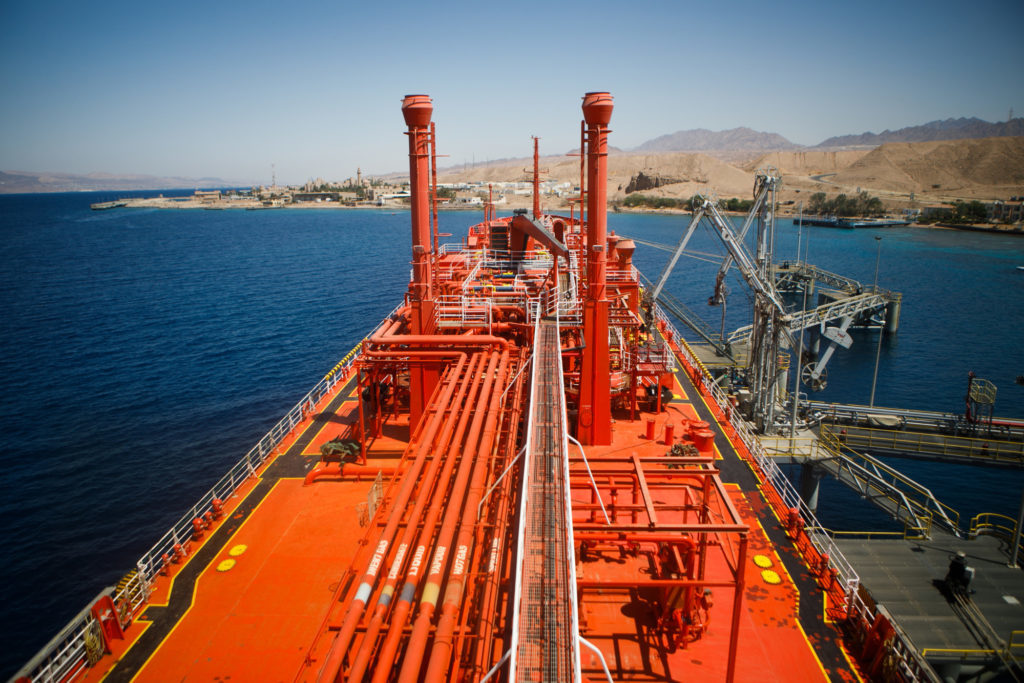
akistan said it saved more than $600 million over the first 10 years of a natural gas supply deal by pitting some of the world’s biggest sellers against each other.
A report from the state’s oil marketing company presented two weeks ago to a senate committee, and reviewed by Bloomberg News, details how the 2016 deal came together with Qatar, the world’s largest supplier of liquefied natural gas. It also sheds a rare light on such high-stakes energy deals, which are almost exclusively settled behind closed doors and stay hidden from public scrutiny.
The maneuvering by Pakistan came after two years of negotiations hit an impasse as Qatar refused to lower its offer price for LNG. So Pakistan sought leverage on the open market in late 2015, publicly seeking 120 cargoes in two large tenders, which brought in bids from suppliers including Royal Dutch Shell Plc and BP Plc.
While negotiations with Qatargas Operating Co. were under way, the tender was “issued to fetch maximum number of bidders and best price option,” the presentation said. “The strategy helped bring down prices with Qatargas and saved $610 million.”
Pakistan then informed Qatar about the lowest bid, from Switzerland-based Gunvor Group Ltd., which the Middle East supplier agreed to match. Pakistan still purchased some LNG from Gunvor, awarding it the first tender. But the volumes it sought from the second tender ended up in the final Qatar deal, bulking it up by 25 percent.
The head of a senate committee now scrutinizing the deal, Mohsin Aziz, confirmed the details of the presentation in an interview last week. Pakistan State Oil Co. and Qatargas officials didn’t respond to requests for comment. Gunvor and BP declined to comment. Shell said it looks forward to future LNG options in Pakistan, without directly commenting on the tender.
The deal with Qatar, which was eventually settled for 3.75 million metric tons annually over 15 years, marked Pakistan’s emergence as an LNG buyer. The country turned to imports after its own declining production forced some factories to shut and caused blackouts. Imports have grown rapidly since early 2016, with Pakistan the seventh-largest LNG buyer globally in August, according to Bloomberg vessel-tracking data.
Negotiations between state agencies and foreign LNG suppliers have been a target of criticism by lawmakers in recent years, some of whom claim that the lack of transparency is hiding potential corruption. These concerns helped the nation’s new prime minister, Imran Khan, sweep to victory in July promising reform. Khan, a former cricket star, has also pledged to strengthen Pakistan’s accountability bureau, which is said to be conducting an inquiry into the country’s first LNG receiving terminal.
Against that backdrop, the Senate Standing Committee on Petroleum, which is also looking into other energy-related developments, brought in Pakistan State Oil officials Aug. 31 to explain the history of the deal. That the 2016 Qatar contract was negotiated in private and the only publicly available copy is redacted raised particular concern.
Despite Pakistan State Oil’s assertion that it saved money, Aziz, the committee head and a member of Khan’s party, said there are still concerns over the deal and will likely recommend the matter for further investigation by government agencies.
The redacted portions of the contract, which were also reviewed by Bloomberg, include the following:
The contract price of the LNG per million British thermal units is the equivalent of 13.37 percent of the average price of Brent oil futures for the preceding three months Pakistan can increase or decrease the size of the contract by five cargoes a year, equivalent to about 8 percent The parties can’t renegotiate the price for 10 years Pakistan can sell cargoes to other buyers and divert to other terminals Port charges to unload cargoes for seller can’t exceed $320,000
These details cover normal contract terms that are generally considered in the industry to be commercially sensitive, according to Fauziah Marzuki, an LNG analyst with Bloomberg NEF. The price and other terms of the contract were in line with in other deals reached around the same time, she said.
Since the launch of the LNG industry in the 1960s, long-term contracts have largely been priced as a percentage of oil, known as a slope. A 13 percent slope means that if the price of oil were $100 a barrel, gas would cost $13 per million British thermal units.
Qatar might have been feeling other pressures in early 2016 beyond Pakistan’s tactics. That was also the nadir of the oil bust, as crude crashed from more than $100 a barrel in mid-2014 to less than $30, bringing down LNG with it.
Reducing the contract’s price from to 13.37 percent from 13.9 percent will save Pakistan $610 million over 10 years at an average Brent price of $60 a barrel, according to the oil company’s presentation.
Recommended for you
